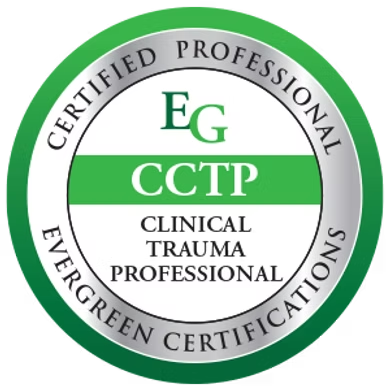Marriage is a journey filled with love, growth, and sometimes challenges. When couples face tough times—like communication breakdowns, frequent arguments, or growing apart—marriage counseling can offer a path forward, but you might be asking yourself, how does marriage counseling work? In this blog post, we’ll break down the process step-by-step, explore its benefits, and help you decide if it’s right for you.
Marriage counseling, also called couples therapy, is a process where a trained therapist helps partners improve their relationship. It’s not just for couples in crisis—many use it to strengthen their bond or prepare for big life changes. Through guided conversations and proven techniques, counseling can bring clarity, rebuild trust, and deepen connection. Let’s dive into how it all works, with some research to show why it’s worth considering.
What Is Marriage Counseling?
Marriage counseling is a type of therapy designed to support couples through challenges and help them grow stronger together. A therapist acts as a neutral guide, creating a safe space for both partners to share their feelings and work on solutions. Whether you’re dealing with small disagreements or bigger issues like trust or intimacy, counseling offers tools to navigate those struggles.
Couple therapy is a powerful way to strengthen relationships, and research backs up just how effective it can be. The average person who goes through couple therapy ends up better off than 70-80% of those who don’t get any help at all (Snyder et al., 2023). That’s a huge win—it shows that couple therapy can make a real difference in helping partners tackle their challenges. Even more impressive, its success rate matches or even beats the best treatments out there for individual mental health issues, whether that’s talking to a therapist or taking medication. So, if you’re looking for a solid way to improve your relationship, couple therapy is a proven option worth considering!
Counseling also has flexible options like Christian marriage counseling, which weaves faith into the process, while online marriage counseling makes it accessible from anywhere. For those worried about costs, marriage counseling without insurance is available through self-pay options, often with receipts for possible reimbursement.
How Does Marriage Counseling Work?
So, how does marriage counseling work? It’s a structured process tailored to each couple’s needs. In general, here’s what you can expect:
1. Initial Assessment
The journey starts with an assessment. The therapist meets with both partners—sometimes together, sometimes separately—to understand the issues. One might say, “I feel ignored,” while the other says, “I don’t know how to make them happy.” The therapist listens, asks questions, and identifies patterns causing trouble.
2. Setting Goals
Next, the therapist helps the couple set clear goals, like “We want to argue less” or “We need to rebuild trust.” For those in Christian marriage counseling, goals might include aligning with faith values. These goals keep the process focused.
3. Therapeutic Techniques
Marriage counseling relies on proven strategies to help couples strengthen their relationships. Therapists often use approaches like Emotionally Focused Therapy (EFT), a method backed by research for its success in improving relationship satisfaction by deepening emotional bonds (Johnson et al., 1999). Here are some key techniques you might encounter:
- Building Communication Skills: Therapists teach practical tools, such as active listening and expressing emotions without pointing fingers. These skills help couples understand each other better and cut down on conflicts.
- Healing Past Hurts: Addressing unresolved pain—like betrayals or old arguments—is a big part of therapy. Research shows that fostering forgiveness can repair trust and bring couples closer (Gordon et al., 2004).
- Aligning on Shared Values: Couples explore what matters most to them, whether it’s family, career, or personal goals. Studies suggest that partners who share similar values and work toward common objectives tend to enjoy stronger, happier relationships (Stanley et al., 2006).
These techniques are grounded in science and customized to fit each couple’s situation, making therapy both effective and personal.
4. Regular Sessions
Sessions typically happen weekly or bi-weekly, lasting 50 minutes to an hour. The therapist guides respectful, productive conversations. For convenience, online marriage counseling offers the same support via video calls, and research shows it’s just as effective as in-person therapy (Doss et al., 2016; Journal of Consulting and Clinical Psychology).
5. Homework and Practice
Between sessions, couples get homework—like practicing a new way to talk or doing a shared activity. Small steps like these turn lessons into lasting change.
That’s the core of how marriage counseling works—a blend of talking, learning, and practicing, customized to your relationship.
Benefits of Marriage Counseling
Why consider marriage counseling? It’s a powerful way to improve your relationship and grow as a couple, no matter where you’re starting from. Research shows that couples who engage in therapy often see meaningful changes, with about 70-80% reporting stronger relationships after sessions (Snyder et al., 2023). Here are some of the key benefits you can expect:
- Better Communication: Counseling teaches you how to talk and listen in ways that build understanding instead of arguments. For example, you might learn to share your feelings without blaming your partner, which can turn tense moments into chances to connect. Over time, these skills help you feel heard and valued.
- Conflict Resolution: Disagreements are normal, but counseling shows you how to handle them constructively. Instead of shouting matches or silent treatments, you’ll discover tools to solve problems together, like calmly discussing what’s bothering you. This can make your relationship feel like a team effort.
- More Intimacy: If emotional or physical closeness has faded, counseling can help you rebuild it. Therapists guide you to address barriers—like stress or past hurts—so you can rediscover the spark that brought you together. Many couples find this reignites their sense of love and partnership.
- Stronger Bond: Life throws challenges at every couple, but counseling helps you build a relationship that’s ready for anything. By working through issues together, you create a foundation of trust and resilience. This means you’re better equipped to face tough times as a united front.
- Personal Growth: Counseling isn’t just about your relationship—it’s about you, too. You’ll gain insights into your own habits, emotions, and needs, which can make you a better partner and a happier person. For instance, you might realize how stress affects your reactions and learn ways to manage it.
These benefits don’t happen overnight, but with commitment, they can transform how you and your partner relate to each other. Whether you’re in a rough patch or just want to grow closer, counseling offers practical steps to make your relationship thrive.
Who Can Benefit from Marriage Counseling?
You don’t need to be in a crisis to try marriage counseling—it’s for any couple who wants to improve their connection. From newlyweds to long-time partners, therapy can help at any stage. Studies suggest that couples who seek help early often see the best results, preventing small issues from becoming big ones (Christensen et al., 2010). Here’s a look at who might find counseling especially helpful:
- Couples Stuck in Repeated Arguments: If you’re caught in the same fights over and over—like about money, chores, or time together—counseling can break the cycle. A therapist can help you uncover what’s really driving those arguments and find new ways to communicate.
- Those Feeling Disconnected: Sometimes, couples drift apart without realizing why. Maybe you’re both busy or just don’t feel as close as you used to. Counseling helps you rebuild that sense of togetherness, so you feel like partners again.
- Partners Facing Trust or Infidelity Issues: Betrayal, like cheating or broken promises, can shake a relationship to its core. Counseling provides a safe space to heal, rebuild trust, or decide what’s next. It’s tough work, but many couples come out stronger.
- Couples Seeking Premarital Counseling: If you’re engaged or planning to marry, counseling can prepare you for a healthy future together. You’ll talk about things like expectations, finances, and family, setting a solid foundation before saying “I do.”
- Those Adjusting to Life Changes: Big moments—like having a baby, moving, or becoming empty nesters—can strain even the best relationships. Counseling helps you navigate these transitions as a team, keeping your bond strong through change.
For faith-driven couples, Christian marriage counseling brings a spiritual perspective to the process. By weaving in values like forgiveness, love, and grace, it aligns therapy with your beliefs, offering comfort and guidance rooted in faith. No matter your situation—whether you’re struggling or just want to grow—counseling can meet you where you are and help you move forward together.
Online Counseling and Paying Without Insurance
Online marriage counseling is a game-changer—effective and convenient. Research from the Journal of Consulting and Clinical Psychology confirms it improves relationship satisfaction just as well as in-person sessions (Doss et al., 2016). It’s ideal if you’re busy or prefer home.
Cost-wise, marriage counseling without insurance is doable with self-pay options. Many therapists offer sliding scales or receipts for potential reimbursement, making help accessible.
A Real-Life Example
Take Sarah and Mike, married five years. They fought over chores, but in counseling, they realized work stress was the real issue. With a goal to communicate better, they learned techniques and started nightly check-ins. Months later, they’re arguing less and laughing more. That’s how marriage counseling works in practice.
Is Marriage Counseling Right for You?
Ask yourself:
- Do we argue more than we enjoy each other?
- Are we drifting apart?
- Can’t we resolve this alone?
- Do we want a stronger bond?
If yes, counseling might be worth it. Seeking help shows strength, not failure and your marriage is worth it!
About Jordan King
Jordan King is a therapist passionate about helping couples heal and grow. Specializing in online marriage counseling , he makes therapy accessible, blending proven techniques with a supportive approach. For faith-based support, he offers Christian marriage counseling. His self-pay practice provides marriage counseling without insurance at affordable rates, with receipts for possible reimbursement.
Contact Jordan at 813-816-1457 or visit Evolving Hope Counseling.
References
- Christensen, A., et al. (2010). Marital status and satisfaction five years following a randomized clinical trial. Journal of Marital and Family Therapy, 36(2), 119-132. https://pubmed.ncbi.nlm.nih.gov/20350033/
- Doss, B. D., et al. (2016). A randomized controlled trial of the web-based Our Relationship program. Journal of Consulting and Clinical Psychology, 84(4), 285-296. https://doi.org/10.1037/ccp0000063
- Johnson, S. M., Hunsley, J., Greenberg, L., & Schindler, D. (1999). Emotionally focused couples therapy: Status and challenges. Clinical Psychology: Science and Practice, 6(1), 67–79. https://doi.org/10.1093/clipsy.6.1.67
- Gordon, K. C., Baucom, D. H., & Snyder, D. K. (2004). An integrative intervention for promoting recovery from extramarital affairs. Journal of Marital and Family Therapy, 30(2), 213–231. https://doi.org/10.1111/j.1752-0606.2004.tb01235.x
- Stanley, S. M., Amato, P. R., Johnson, C. A., & Markman, H. J. (2006). Premarital education, marital quality, and marital stability: Findings from a large, random household survey. Journal of Family Psychology, 20(1), 117–126. https://doi.org/10.1037/0893-3200.20.1.117
- Snyder, D. K., Balderrama-Durbin, C., & Cigrang, J. A. (2023). The effectiveness of couple therapy: Clinical outcomes and emerging issues. Family Process, 62(2), 628–643. https://doi.org/10.1111/famp.12824







